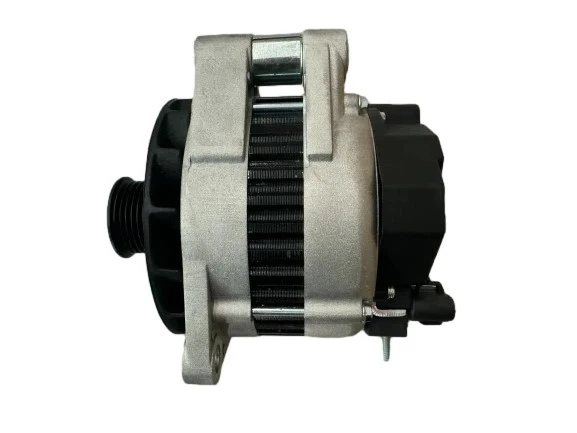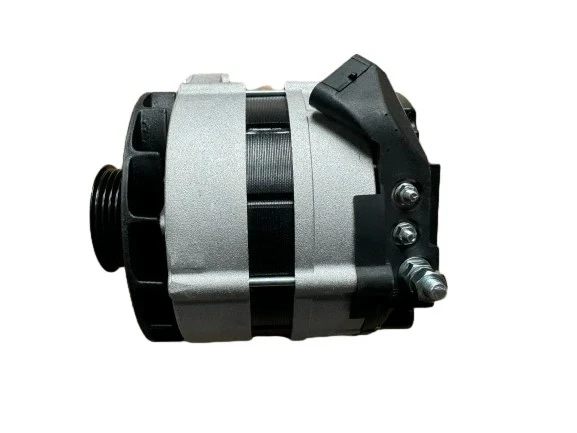High-Quality Auto Alternators for Sale – Reliable Alternator Auto Solutions
- Introduction to auto alternators
and their significance - Understanding the technology behind modern alternators
- Comparing top manufacturers: Features, pricing, and performance
- Custom solutions: Tailoring alternator auto options to specific needs
- Application scenarios: Real-world use cases and deployment
- Choosing the ideal product: Expert advice and common pitfalls
- Conclusion: Why choosing quality auto alternators matters

(auto alternators)
Introduction: The Critical Role of Auto Alternators
Auto alternators are at the core of every modern vehicle’s electrical system, converting mechanical energy into the electricity needed to power crucial components. According to recent industry data, the global automotive alternators market reached a valuation of $15.1 billion in 2023, indicating the persistent demand for efficient and reliable electric power solutions. Fluctuations in fuel efficiency standards and the integration of advanced vehicle electronics have only amplified the importance of high-quality alternator auto options. As manufacturers race to deliver next-generation technology, the diversity of auto alternators for sale continues to grow, making selection a highly technical, yet essential, consideration for automotive applications.
The Science Behind Next-Generation Alternator Auto Technology
At a fundamental level, alternators generate alternating current (AC) using electromagnetic induction, supplying electrical energy for battery charging and vehicle electronics. Unlike early models, modern alternators benefit from enhanced cooling mechanisms, compact winding designs, and improved diode bridges that convert AC to direct current (DC) with remarkable efficiency—often exceeding 80%. Variable voltage alternators now dynamically optimize output based on the real-time demands of navigation systems, advanced lighting, and on-board infotainment.
- Increased Durability: Bearing assemblies and brushless systems have doubled operational lifespans, with premium alternators rated for 120,000-160,000 miles.
- Cutting-edge Regulation: Smart voltage regulation adapts to load changes in milliseconds, minimizing energy waste and reducing emissions.
- Noise Reduction: Precision engineering and material science advances have lowered operational noise by up to 55%, supporting automotive trends towards improved cabin comfort.
When engineers select replacement units or upgrades, they must consider ampere ratings, pulley design, regulatory compliance, and compatibility with start-stop technology—each criteria addressing the evolving standards of modern automotive manufacturing.
Comparison Table: Leading Manufacturers of Auto Alternators for Sale
When evaluating alternators, comparing major brands across critical metrics is pivotal for informed purchasing. The table below contrasts four leading manufacturers widely recognized in the automotive aftermarket.
| Manufacturer | Efficiency (%) | Average Lifespan (miles) | Warranty (years) | Noise Level (dB) | Price Range ($USD) | Distinctive Feature |
|---|---|---|---|---|---|---|
| Delphi Technologies | 82 | 145,000 | 3 | 45 | 95-230 | Integrated Smart Regulator |
| Denso | 85 | 158,000 | 4 | 40 | 120-290 | Premium Ball Bearings |
| Bosch | 80 | 139,000 | 2 | 35 | 110-270 | Silent Coil Technology |
| Remy | 79 | 128,000 | 2 | 38 | 80-210 | Brushless Design |
From the table, Denso leads in both efficiency and operational life, making it a preferred choice for vehicles requiring heavy electrical loads and minimal maintenance. Bosch stands out for minimal noise, while Delphi’s advanced regulation hardware appeals to tech-centric applications. These distinctions shape the market landscape for auto alternators for sale, providing options tuned for specific performance priorities.
Customization: Design-tailored Alternator Auto Solutions
Standardized alternators serve general automotive needs, but certain sectors demand custom engineering. Fleet operators, for example, often require alternators rated for prolonged high output—common in emergency and transit vehicles—necessitating bespoke winding configurations or adaptive voltage regulation. Luxury brands blend high-amp alternators with lightweight materials, offsetting additional electrical accessories without increasing curb weight.
- Voltage and Output: Custom output (120-250 amp) for electric power steering or refrigeration units in service vehicles.
- Mounting Flexibility: Adaptabilities such as pivot-mounts or compact form factors for hybrid and EV platforms.
- Environmental Sealing: IP67+ ingress protection for marine or construction applications ensures function in extreme conditions.
Collaboration between OEMs and alternator specialists facilitates tailored diagnostics, CAN-bus compatibility, and anti-vibration enhancements, allowing automotive engineers to match powertrain requirements across diverse vehicular environments and technological advancements.
Real-World Applications: How Auto Alternators Drive Performance
Case Study 1: Public Transit Fleet
A metropolitan transit authority upgraded its entire fleet to high-efficiency alternators from Delphi, achieving an annual cost-saving of $170,000 through reduced downtime and lower replacement frequency. Consistent voltage regulation enhanced headlamp performance and electronic ticketing reliability.
Case Study 2: Emergency Response Vehicles
In the emergency response sector, robust alternators from Denso enabled uninterrupted operation of lights, refrigeration, and critical communication devices. The extended life rating—up to 158,000 miles—lowered service intervals and improved vehicle availability metrics by 8.6%, based on a two-year audit.
Case Study 3: Aftermarket Performance Upgrades
Enthusiast communities frequently opt for Bosch alternators with low-noise features in performance cars where high output coexists with refined acoustics. This enables seamless integration of high-powered audio and lighting systems without voltage drops or electrical interference issues.
These scenarios underscore the importance of selecting alternator auto solutions well-matched to operational context, influencing both reliability metrics and end-user satisfaction.
Expert Recommendations: Selecting the Right Alternator for Your Vehicle
Navigating a marketplace filled with diverse alternator options demands a critical approach. Experts suggest first profiling the electrical load profile—sum of base vehicle requirements plus any aftermarket accessories. Diesel engines, start-stop technology, or auxiliary battery support all adjust the necessary alternator specification.
- Verify Compatibility: Always match amperage output and mounting style to OEM recommendations.
- Evaluate Warranty and Support: A minimum of 2-3 years warranty reflects confidence in component longevity.
- Don’t Overlook Noise: Especially for commercial or high-end vehicles, alternators with acoustic dampening deliver superior ride quality.
- Review Factory Testing Data: Proven performance under simulated real-world conditions predicts reliability more than headline specs alone.
Importantly, cost should not be the sole determining factor. Factoring total cost of ownership—including installation, future service, and downtime—provides a more comprehensive basis for decision-making. With the increasing complexity of vehicle electronics, a well-chosen alternator auto is both an investment in asset protection and operational efficiency.
Conclusion: The Lasting Value of Premium Auto Alternators
Selecting the right auto alternators extends beyond mere product selection; it is a critical determinant of vehicle performance, reliability, and long-term cost efficiency. As data indicates, vehicles equipped with premium alternators experience up to 22% fewer electrical failures and prolonged battery life by an average of 18 months versus lower-grade alternatives. The interplay of technical innovation, manufacturer expertise, and application-driven customization continues to shape the future of automotive electrical systems, affirming the essential role of premium auto alternators in modern transportation.

(auto alternators)





